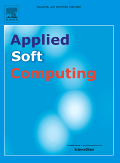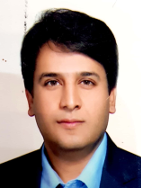- Written by: Thomas Weise
The Institute of Applied Optimization welcomes Xinlu Li [李新路], who today has officially joined our team as researcher. He also currently is finishing his PhD in Computer Science under the supervision of Dr. Fred Mtenzi and Dr. Brian Keegan at the Technological University Dublin (TU Dublin, formerly named Dublin Institute of Technology, DIT) in Dublin, Ireland. He received his M.Sc. from Anhui University [安徽大学], Hefei, Anhui, China in 2009. His research is focused on energy efficient routing protocol design for large-scale Wireless Sensor Networks based on Swarm Intelligence Algorithms.
We are very happy to have Mr. Li in our team and look forward to working together on many interesting applications of optimization methods.
- Written by: Thomas Weise
I am happy to announce that our group has moved into our new offices in the new building 52 with the nice name [合肥学院综合实验楼]. While the new offices are still temporary, they are very nice and modern. We not just have much more space than before, all the members of our young group can now also finally be co-located, which will make collaboration much easier. We are very thankful for the support of our university and faculty. The new building is quite beautiful, modern, and even equipped with solar panels on the facade! Our campus is now growing quickly and, with the generous support of the city and the government, our university adds more and more facilities and buildings.

- Written by: Thomas Weise
Today, our application for a Special Issue on Benchmarking of Computational Intelligence Algorithms was accepted by the Applied Soft Computing journal published by Elsevier B.V. and indexed by SCIE and EI. Here you can download the Call for Papers (CfP) of the Special Issue in PDF format and here as plain text file.
Computational Intelligence (CI) is a huge and expanding field which is rapidly gaining importance, attracting more and more interests from both academia and industry. It includes a wide and ever-growing variety of optimization and machine learning algorithms, which, in turn, are applied to an even wider and faster growing range of different problem domains. For all of these domains and application scenarios, we want to pick the best algorithms. Actually, we want to do more, we want to improve upon the best algorithm. This requires a deep understanding of the problem at hand, the performance of the algorithms we have for that problem, the features that make instances of the problem hard for these algorithms, and the parameter settings for which the algorithms perform the best. Such knowledge can only be obtained empirically, by collecting data from experiments, by analyzing this data statistically, and by mining new information from it. Benchmarking is the engine driving research in the fields of optimization and machine learning for decades, while its potential has not been fully explored. Benchmarking the algorithms of Computational Intelligence is an application of Computational Intelligence itself! This special issue of the EI/SCIE-indexed Applied Soft Computing journal published by Elsevier B.V. solicits novel contributions from this domain.
See also:
- Special Issue on Benchmarking of Computational Intelligence Algorithms in the Applied Soft Computing Journal
- Special Issue Call for Papers (CfP) in PDF format
- Special Issue Call for Papers (CfP) as plain text file
- International Workshop on Benchmarking of Computational Intelligence Algorithms (BOCIA)
- Workshop on Benchmarking of Computational Intelligence Algorithms approved for ICACI 2018
- Submission Deadline Extended to December 1, 2017: International Workshop on Benchmarking of Computational Intelligence Algorithms (BOCIA)
- Workshop Call for Papers (CfP) in PDF format
- Workshop Call for Papers (CfP) as plain text file
- BOCIA 2018 Workshop WikiCfP Entry
- BOCIA 2018 Workshop CfP on LinkedIn

- Written by: Thomas Weise
Our institute warmly welcomes Dr. Mohammad Ali Raayatpanah [محمدعلی رعایت پناه], Assistant Professor at the Department of Mathematics, Faculty of Mathematical Sciences and Computer [دانشکده علوم ریاضی و کامپیوتر] at Kharazmi University [دانشگاه خوارزمی] in Tehran [تهران], Iran [جمهوری اسلامی ایران]. Dr. Raayatpanah is an outstanding researcher in the fields of operations research and distributed computing, with special interest in linear and integer programming, network flows theory and algorithms, communication networks, and network coding. He will stay with us from July 2 to August 27, 2018 and conduct joint research with our team members during this period.
Dr. Raayatpanah has received Ph.D. in 2009 in Applied Mathematics at the University of Tehran [دانشگاه تهران], after receiving M.Sc. and B.Sc. degrees in the same field in 2004 at the University of Tehran, Iran and in 2000 at the University of Kashan [دانشگاه کاشان], Iran, respectively. Dr. Raayatpanah has published several works in top-level journals such as the Journal of Combinatorial Optimization, Computer Networks, the Optimization Letters, the Transactions on Emerging Telecommunications Technologies, the Journal of Network and Computer Applications, and the International Journal of Communication Systems. He also already conducted several international research stays at prestigious institutions including the University of Florida, USA (2012/10-2013/04), the Chinese University of Hong Kong [香港中文大學] (2015/07-09), Tsinghua University [清华大学], Beijing, China (2016/07-09), and at Fudan University [复旦大学], Shanghai, China (2017/07-09).

- Written by: Thomas Weise
Today, the program of the Black-Box Discrete Optimization Benchmarking (BB-DOB@GECCO) Workshop has been released. This first release of the BB-DOB Workshop series takesplace at the Genetic and Evolutionary Computation Conference (GECCO'18) in Kyoto, Japan, whose program can be found here and is mirrored here. The aim of our workshop is to develop a similar standard methodology for the benchmarking of black-box optimization algorithms for discrete and combinatorial domains. We want to produce a well-motivated benchmark function testbed, a standardized experimental set-up, rules for measuring and the generation of data output, and standardized post-processing and presentations for the results in graphs and tables. Our workshop has six accepted submissions and will span over two sessions and take place on Monday, July 16, 09:00-12:40, in Training Room 3 (2F). The schedule will leave room for discussions and socializing.
